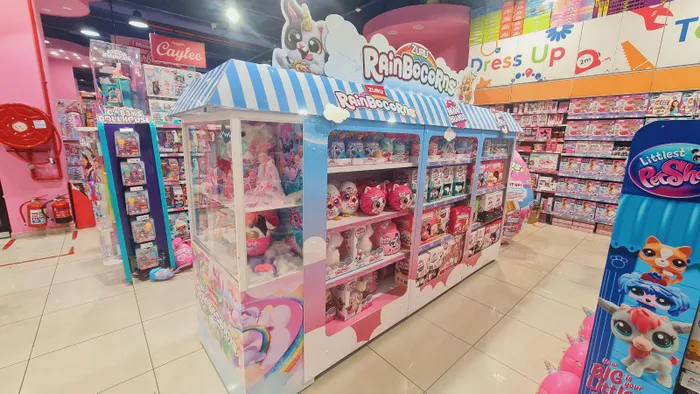Toy industry demonstrates resilience as South Africans seek value in challenging economy

As the toy industry in South Africa shows steady growth, families are finding ways to bring value into their play. Explore how e-commerce and changing consumer preferences are reshaping shopping habits and redefining the landscape of childhood joy in our latest report.
Image: Supplied.
South Africa’s toy market is quietly defying gravity.
Spanning the realms of whimsy and imagination, this sector is showing remarkable growth despite a challenging economic landscape characterised by strained consumer confidence and rising import costs, suggesting that the business of play is more resilient than it first appears.
According to the IMARC Group’s South Africa Toys Market Size, Share & Trends Report 2033, the local toy market was valued at $511 million (approximately R9.6 billion) in 2024, with projections indicating it could nearly double to reach nearly $900 million by 2033, experiencing a steady growth rate exceeding 6% annually.
A significant portion of South Africa's toy supply is imported, predominantly from China.
Data from IndexBox indicates that the country accounts for roughly a quarter of Africa's total toy imports. However, ongoing challenges, including rising shipping costs and a volatile rand, are pushing the cost of distribution ever higher.
“The pressure on household budgets is real, but the emotional value of play hasn’t changed,” said Christiane Schwarz, Senior Marketing Executive at global toy maker ZURU.
“Families are looking for smarter, longer-lasting options—products that foster creativity and togetherness, all without a premium price tag.”
Value over volume
In contrasting previous spending habits, consumers are now prioritising value-driven decisions. Retail analysts report that the mid-market segment, covering toys priced between R100 and R500 is currently driving the bulk of sales.
In response to financial uncertainties, parents are placing a greater emphasis on durability and enjoyment rather than indulging in the allure of big-ticket novelty items.
Brands like ZURU’s Mini Brands, 5 Surprise, MAX Build More building sets, X-SHOT outdoor blasters, Snackles, and Fugglers plush toys epitomise this shift toward affordable quality.
“Price sensitivity has redefined success,” Schwarz remarked. “It’s no longer about how many toys a child receives, but rather how long they can be enjoyed and whether they foster connections with others.”
Major retailers, including Makro and Toys R Us South Africa, are adapting to these trends by expanding their mid-range and entry-level offerings. Concurrently, e-commerce platforms like Takealot and Loot are witnessing increasing demand for collectible toys priced under R300.
Online sales become a lifeline
The burgeoning e-commerce sector in South Africa is significantly reshaping how families shop for toys and is emerging as a solid anchor amid economic instability.
Data from the Online Retail in South Africa 2025 report, formulated by World Wide Worx in collaboration with Mastercard, Peach Payments, and Ask Afrika, predicts that the country’s online retail turnover will exceed R130 billion by the end of 2025, accounting for nearly 10% of total retail sales.
Online retail grew by an impressive 35% in 2024, reaching R96 billion, and is on track to continue growing at an annualised rate of 38%, well outpacing physical retail channels.
This digital acceleration is favourably impacting toy sales, with projections from EcommerceDB anticipating South Africa’s online toy sales to hit $84.6 million (around R1.6 billion) by 2025, representing annual growth of more than 20% as toggling between platforms for better prices and convenience becomes the norm.
“For us, digital retail is more than a channel, it’s a community,” Schwarz explained. “We can see what resonates in real-time, whether that’s collectibles like Mini Brands or active engagement with X-SHOT. This allows us the agility to respond immediately to what South African families love.”
Schwarz’s observation highlights that while toys may seem detached from overarching economic trends, the sector reflects the resilience and adaptability of South African households. Despite financial pressure, families continue to prioritise play and connection, cherishing moments of joy amidst uncertainty.
“The best memories aren’t bought; they’re made,” declared Schwarz. “That sentiment keeps this category alive, even during tough times.”
BUSINESS REPORT